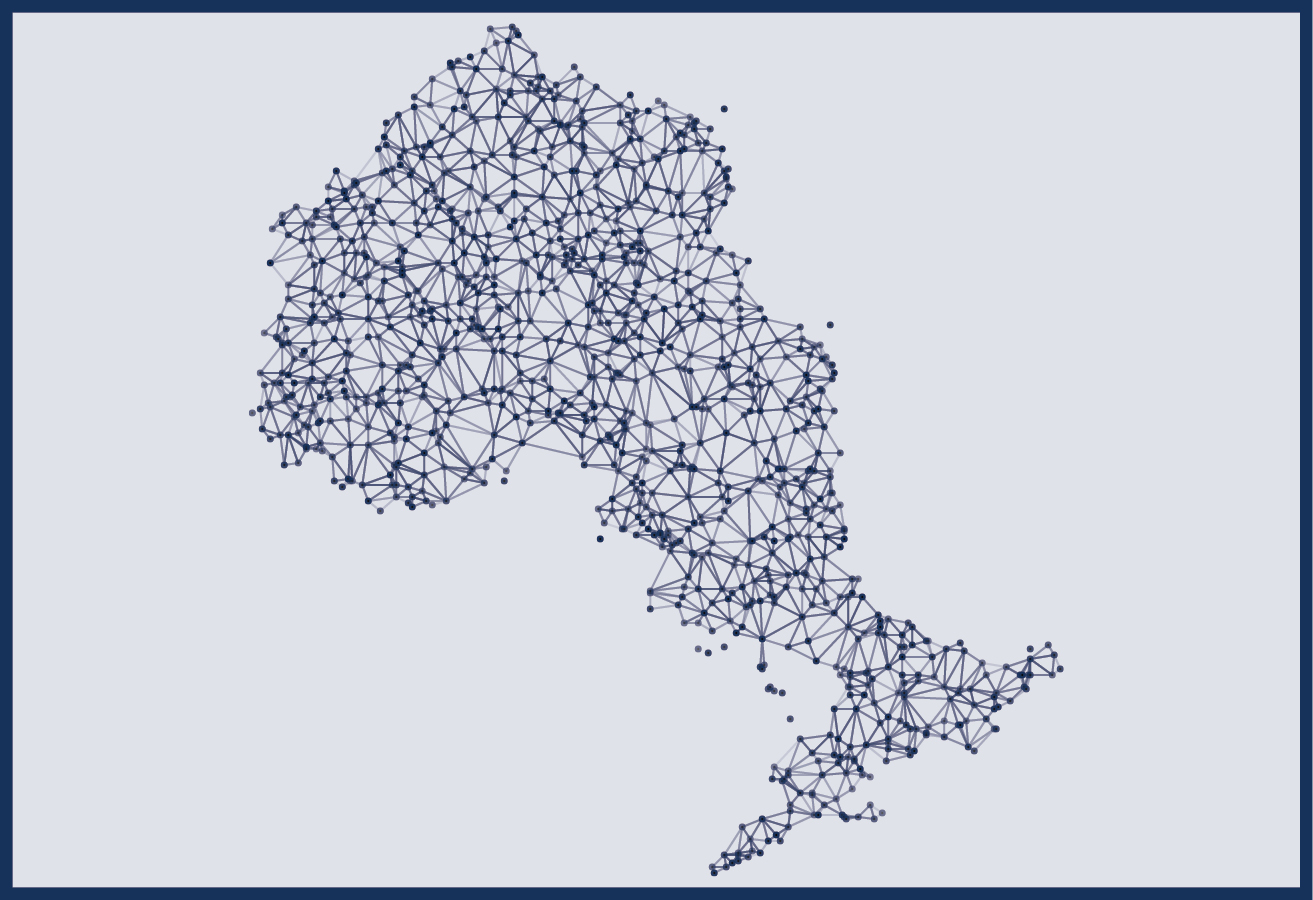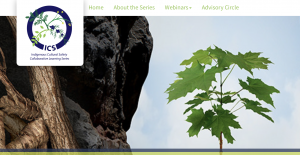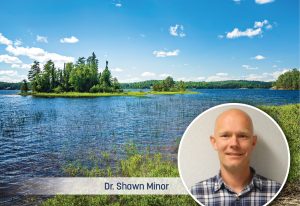Building Relationships across Northern Ontario
Posted on April 7, 2021
Partnerships are key to ensuring that the Northern Ontario School of Medicine (NOSM) achieves its potential. Reaching beyond the usual buildings and classroom walls, NOSM spans across all of Northern Ontario where our distributed, community-engaged model thrives. Our school’s relationships stretch from Kenora to Moose Factory and from Red Lake to M’Chigeeng First Nation.
Our partnerships are relationships that are based on NOSM’s values.
Indigenous community experiences
Forty First Nations communities across Northern Ontario are crucial to our success. By completing a placement in a First Nations community during their first year, NOSM’s medical students are immersed cultural traditional activities. Students see firsthand how care is provided in health centres or nursing stations and learn about locally-relevant public health programs. Students often recall that non-clinical experiences have a tremendous impact on how they provide care after their placement. One such experience is traveling to the community.
Pre-pandemic, students travelled to their host community right around this time each spring. This is a particularly challenging time of year for travelling to some remote or fly-in communities. Fog and bad weather can determine whether or not a plane is able to land in some communities in the far north. From their travels, students learn how community members live. When they later see a First Nations person in a hospital or clinic setting, they better understand the reality of what they went through to get there.
Rural and remote training and Francophone partnerships
A substantial proportion of the population of Northern Ontario is made up of those who live in rural and remote communities, where health challenges are very different than in the larger centres in the North. During their second year, NOSM medical students complete two four-week placements in one of 50 small, rural, or remote communities. These are the communities and people most impacted by the shortage of health-care professionals. Also, with a focus on Francophone experiences NOSM has developed strong relationships in many key ways to build a Francophone health curriculum and retention program.
Clinical experiences in mid-sized communities
In the third year of the MD program, students spend eight months living in one of Northern Ontario’s 15 mid-sized communities. Spending most of their time in family practice, NOSM students learn their core clinical medicine by helping to care for patients in communities like Sioux Lookout and Temiskaming Shores. Students may choose to do their placement in predominantly Francophone towns like Kapuskasing or Hearst.
Upon completion of their MD, medical students transition to the role of resident. Residents learn a specific type of medicine and their continued education takes place in hospitals and clinics, as well as many of these same rural, remote, Francophone, and Indigenous communities across Northern Ontario.
Far-reaching collaboration is key
Our partnerships are collaborative projects. With shared strategic developments and planned co-investments, we will enhance our work, provide access to improved health care for Northern Ontario, foster innovation and create new opportunities. Much of our research—particularly in primary care—is based on networks of physicians investigating population health, social determinants of health and big data. Like NOSM’s distributed, community-engaged learning model, more than half of the School’s research takes place outside the campus settings.
NOSM collaborates widely with major academic partners, both locally and regionally. We have more than 500 agreements in place with our partners. Our newly renewed affiliations with the two Academic Health Science Centers (AHSC), Heath Sciences North in Sudbury and Thunder Bay Regional Health Sciences Centre are prized. We’re exploring four priorities, with these AHSCs integrated leadership structures, collective health human resource planning, specialty and subspecialty residency expansion, and areas of collaborative research.
Health equity and advocacy
Regional clusters and local communities play an important role in shaping opportunities for health and well-being. That is why our school is committed to working with community members to reduce health disparities among populations in marginalized settings in Northern Ontario. To strengthen our administrative structures, we plan to formalize our networks in key regions that will align with our areas of strength in health equity research, education, and service.
We are building bridges with these important regional networks to promote alignment, partnership and collaboration and to address identified health priorities to return to our original mandate focused in northern Ontario for it’s health care needs.
Health inequities have arisen from the multigenerational effects of colonization and the legacy of residential schools. School-wide initiatives and community collaborations strive to address the barriers—whether social, economic or political—that prevent true health equity. Our goal? To improve the health and well-being of Indigenous communities across Northern Ontario and building respectful relationships between local communities and the NOSM faculty and students.
A great example of this is the relationship accord we signed with Nishnawbe Aski Nation (NAN) on March 23. The accord will guide NAN and NOSM as we move forward in supporting the NAN Health Transformation process with the goal of developing mutually supported initiatives that will build capacity and strengthen the health system within NAN territory.
I have been proud to work with a sophisticated matrix of multiple stakeholders that gave birth to this school – municipalities, colleges, politicians, community leaders, Indigenous and Francophone champions, donors and hospitals and Universities all are playing a role helping NOSM reach its full potential- to fulfill its mission, namely, to improve the health of Northern Ontarians by being socially accountable in our education and research programs and advocating for health equity.
Strengthening Indigenous Cultural Safety
The National Indigenous Cultural Safety (ICS) Learning Series is an ongoing series of webinars for people who wish to know more about Indigenous Cultural Safety and who may be working with Indigenous people in varying capacities across settings. The series explores anti-Indigenous racism, discrimination and cultural safety and identifies how each informs our systems, why they persist, and how we can address them. View the recorded webinars. At NOSM, we have come together to create a culture of diversity, inclusion, respect, social accountability and wellness. Let’s work in a culture of kindness and #RespectTheDifference.
NOSM Grad helps to end Atikokan’s doctor shortage
A few years ago, Atikokan was a town in crisis having only one full-time and one half time family physician for a population of approximately 2,800 people. The community relied heavily on a rotation of locums to meet its health-care needs.
Today, the town has a stable physician workforce that is able to provide patient-centered care, continuity of care, and importantly, a supportive network for physicians. Dr. Shawn Minor is a graduate of the Northern Ontario School of Medicine (NOSM) MD Class of 2016 and completed his residency at University of British Columbia in 2018. Originally from Thunder Bay, he and his wife, with their young children, decided to return to Atikokan to be closer to their extended family. Read more.




